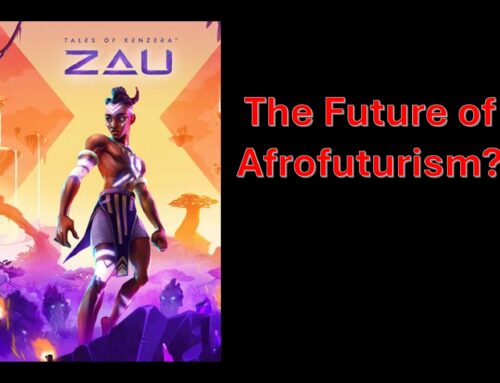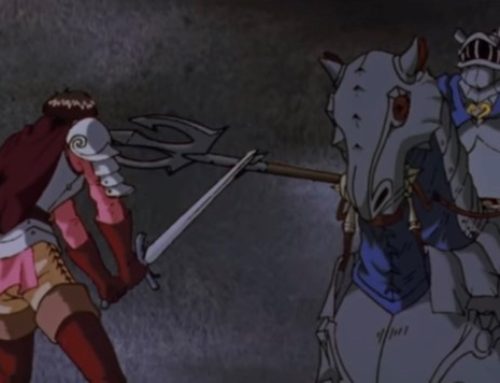A lot of people complain about the gameplay of the Bioshock games. I’m not sure why; all three of them were good first-person-shooters, especially for the years they came out. Perfect? No. Good enough to be entertaining games? Yes. Especially Bioshock Infinite, where you can ride the skyhooks and use them in combat. I personally think they still hold up today.
But what everyone normally praises Bioshock games for is the writing, especially the backstories of the two cities where the games take place: Rapture and Columbia. One of these cities is, in fact, well-written, to the point where you can see how it was made, how it operated for a while, and how it ultimately collapsed. The other…made no sense whatsoever.
I am not going to go into detail about whether or not Rapture is an accurate deconstruction of Ayn Rand’s Objectivism, partly because the game never actually refers to Andrew Ryan’s philosophy as such. However, the condition we, the player, find Rapture in makes perfect sense once we piece together its history from the audio logs. Why was the city built? Because Andrew Ryan and a number of other capitalists wanted to build a city where they were free to innovate without fear of constraints from luddites opposed to technology, religious movements that opposed social progress and freed expression, communists who demanded a portion of whatever profits they made, and a host of other government parasites. What were the problems? Everyone thought they’d get to be captains of industry and were shocked to learn that someone still had to scrub the toilets clean the streets, ADAM splicers discovered that sometimes the religious nut complaining about perversions of nature has a point, and most important: Ryan’s inability to follow his own principles when they stopped benefiting him.
That last one alone was enough to topple the city, as Andrew Ryan’s obsession with staying in power even as others in his city started to outpace him and should have, by all rights, replaced him by his own rules revealed that the entire promise of Rapture was a lie; as soon as Andrew Ryan felt small, he constrained others he felt were stronger than him, and the entire spirit of the city broke. Everything else, the splicers, ADAM, Frank Fontaine (a gang leader who led a revolution that resulted in lots of ADAM splicers going insane and looting the city) – they accelerated the collapse, but as soon as the city’s founder revealed himself to be a hypocritical tyrant and shattered the dream of Rapture, the city was doomed. And the thing is, some of Ryan’s paranoia and crackdowns were completely justified: his fears of Soviet espionage would have been perfectly legitimate in 1960, since that’s how the Soviets got the bomb in real life. Would they sabotage a city like Rapture just to make sure that there was nowhere for their productive, richest people to flee? Absolutely.
Now let’s look at Columbia, which in my opinion, is an exercise in what not to do when trying to worldbuild a city. I don’t want to ascribe too many judgments to the writers involved in Bioshock Infinite, but I can’t shake the feeling that Ken Levine wanted to create a city of evil racist white Americans, so he started with that conclusion and then tried to work his way back from there. The problem is, if a bunch of racist white people in real life built a city, tied it to balloons, and floated away into the skies, most people on the ground would wave them goodbye and hope they never come back, and that would be the end of it.
But wait a minute, what would happen if a bunch of racist white people in real life bought a neighborhood and put up a fence with a sign that said “No Black People?” Would everyone just let them have their racist neighborhood? Is that acceptable? Is it worth breaking up such a community, even if it means putting constraints on people’s freedoms and property rights? Will forcing the angry racist white people to live next to blacks whittle away at their racist attitudes, or will they just be more hateful now that the government is forcing them to live with minorities against their will? Is it possible that simply holding racist, hateful attitudes towards other ethnic groups is not enough by itself to make you a villain if your beliefs don’t result in harm to other people?
To rectify this, the creative team at Irrational Games decided that there needed to be some black, brown, and Irish people in Columbia for the evil racist white folks to oppress. Somehow they managed to get some Chinese folks as well, which is quite an accomplishment in 1912 America, since most Asian-Americans were exclusively living on the west coast back then.
Wait, why are a bunch of racist white people who want to live in a city where they don’t have to go near black and brown people bringing a bunch of black and brown people with them? I imagine Ken Levine having a discussion with his creative team going something like this:
Ken: “The Founders of Columbia brought ethnic minorities with them because they needed someone to clean the toilets and do all the dirty jobs white people didn’t want to do. Same problem as Rapture.”
Writer #1: “Um, weren’t there plenty of whites doing those jobs back in 1912? If you were rich in England, and you wanted to hire servants, your options were mostly a wide variety of whites. There weren’t enough black people in England to clean all the toilets of the upper class, and there were plenty of low class whites who would have been happy to do those jobs to pay bills.”
Writer #2: “And don’t we have a white guy shining the shoes of another white man in the beginning of the game, shortly after Booker enters the city and before everything gets violent? Why is he still working a menial job if they brought black people with them specifically to do that?”
Ken: “Well…but those white people were paid, and the founders wanted slaves! Or at least, a bunch of servants they could pay at a reduced rate. Comstock wanted to tax the blacks more than the whites, that’s it! There’s even an audio log about it.”
Writer #1: “Okay, that’s a little odd, but with enough Confederates among the Founders and some twirled mustaches, we could probably make it work. Now what kinds of enemies do we have in the game?”
Ken: “Besides the normal policemen, there’s auto turrets that fire machineguns and mechanized patriot robots that fire crank guns.”
Writer #2: “DAMMIT KEN! How are we supposed to justify the evil white men using slavery when they’ve got robots that can tell friend from foe? You think people aren’t going to notice a city with gun-toting robots and no Roombas?”
Another issue I always had with Columbia was the fact that they were gearing up to destroy the rest of the world and purge the planet of any type of society that wasn’t exactly like theirs. Remember in the first Bioshock where Rapture, a single city at the bottom of the sea, was a credible threat to every other nation in the world? No? Me neither! So what the hell was going on in Columbia that made their city a superpower that could threaten the rest of the pre-WWI world? Remember that this is prior to America becoming a superpower on the world’s theater; the idea of a city that broke off from the U.S. becoming an even greater superpower is borderline insane.
The closest argument I can think of is that Columbia was able to bring in armies from other dimensions through tears, but even if that worked as intended, how many armies could they reasonably bring? Infinite dimensions doesn’t mean infinite resources and manpower; there’s a limit to how many armies you can bring into the sky in one location before you’re going to cause problems for each other and turn your airships into sitting ducks for surface-to-air weapons on the ground. At some point, your going to cause some massive issues when you bring so much matter into one dimension from other dimensions that you mess with the Earth’s gravity, and what happens to the other dimensions when they let Columbia Prime borrow their militaries? Do they return after their battles to find their cities have been destroyed?
I could go on the reasons Columbia’s worldbuilding is dumb for a long time; there’s still the problems with vigors, the question of how the Lutecs discovered so many breakthroughs in quantum mechanics in the first place, the issues with parallel dimensions and the entire crazy location at the end, but we’d be here all day. The bottom line from Bioshock Infinite: enjoy the gameplay, skip the worldbuilding.





